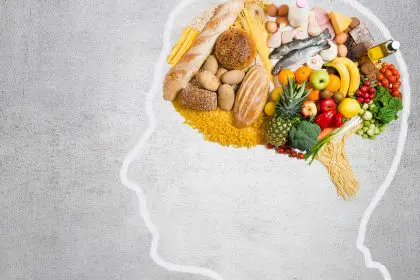A groundbreaking study published in Nature Medicine has unveiled a disturbing truth about our daily beverages that’s sending shockwaves through the medical community. The research reveals that sugar-sweetened drinks are responsible for an astounding 3.3 million new cases of diabetes and heart disease each year, with many cases proving fatal.
The global impact
Dr. Dariush Mozaffarian, leading the research from Tufts University’s Food is Medicine Institute, has uncovered a health crisis that spans continents. The comprehensive study, analyzing data from 2.9 million participants across 118 countries, paints a grim picture of how these seemingly innocent beverages are wreaking havoc on global health.
Developing nations at risk
Perhaps most alarming is the disproportionate impact on developing regions. Sub-Saharan Africa bears a particularly heavy burden, with over 21% of diabetes cases linked directly to sugary drink consumption. This revelation highlights a growing health disparity that threatens to overwhelm already strained healthcare systems.
The science behind the danger
The study’s findings expose why these beverages pose such a unique threat. Unlike solid foods, sugar-sweetened drinks allow for rapid sugar consumption without triggering the body’s natural fullness signals. This deceptive characteristic leads to excessive caloric intake while providing virtually no nutritional benefits.
Hidden calories revealed
A stark comparison emerges when examining caloric content. While a can of cola might contain similar calories to a serving of chocolate cookie dough, the critical difference lies in the complete absence of beneficial nutrients like protein and fiber in the beverage. This empty-calorie consumption pattern contributes significantly to health problems.
The diabetes connection
The research identifies a troubling correlation: sugar-sweetened beverages contribute to nearly 10% of all type 2 diabetes cases globally. The rapid absorption of liquid sugar leads to dangerous blood sugar spikes, promoting insulin resistance and weight gain – key factors in diabetes development.
Heart health implications
Beyond diabetes, the study reveals that 3.1% of heart disease cases worldwide can be traced back to these beverages. This connection underscores the far-reaching consequences of regular sugary drink consumption on cardiovascular health.
Mental health concerns
Emerging evidence suggests the impact extends beyond physical health. Researchers have identified potential links between sugary drink consumption and various mental health issues, including cognitive decline and mood disorders, adding another layer of concern to this growing health crisis.
The nutritional void
Regular consumers of sugar-sweetened beverages often show significantly lower intake of essential nutrients. The study highlights decreased consumption of calcium, dairy products, fruits, and fiber among heavy sugary drink users, creating a dangerous nutritional deficit.
Policy challenges
While the evidence mounts, policy responses vary dramatically worldwide. Some countries have implemented aggressive measures, including taxation rates as high as 100% on sugary beverages. However, many regions, including the United States, lag behind in adopting effective regulatory measures.
Recommended solutions
Health experts advocate for a comprehensive approach to addressing this crisis. A minimum 20% tax on sugar-sweetened beverages has been identified as the threshold for meaningful impact on consumption patterns. Additionally, clear warning labels and restrictions on marketing to children are considered crucial steps.
Personal action steps
Individuals can take immediate steps to protect their health by choosing alternatives such as water, unsweetened coffee or tea, and sparkling water. Gradual reduction of sugar intake and careful label reading can help consumers make healthier choices.
The way forward
Addressing this global health crisis requires a combination of individual awareness and systemic change. While personal choices matter, policy reforms and public health initiatives are essential for creating lasting impact and protecting vulnerable populations.
This comprehensive study serves as a wake-up call about the dangers lurking in our everyday beverages. As the evidence mounts and the health toll rises, the urgency for both individual and collective action becomes increasingly clear. The future of global health may well depend on how we respond to this growing crisis.















